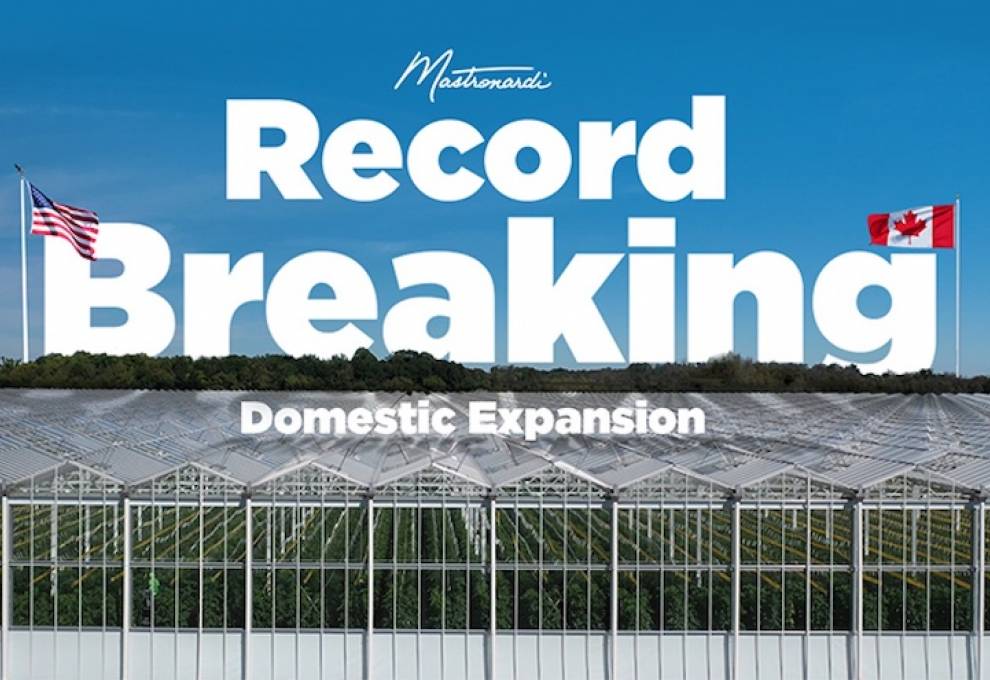
- Earlier this year, the largest-ever greenhouse lettuce build was completed in Berea, Kentucky, spearheading cultivation for Queen of Greens, the industry’s first scaled, washed, and ready-to-eat greenhouse lettuce.
- In nearby Richmond, an immense 60-acre lit greenhouse has been built, catapulting production of SUNSET tomato varieties such as the brand’s flagship Campari tomato.
- In June, The Utah Greenhouse Company joined the Mastronardi network and began growing SUNSET’s Bombs tomatoes in a high-tech 28-acre greenhouse set to double in capacity.
- In response to the huge demand for CEA strawberries, Mastronardi recently added two new strawberry greenhouses to grow SUNSET’s award-winning WOW berries. More than 100 acres of lit strawberry farms are now in operation in both Canada and the U.S.
Source: Mastronardi Produce October 13, 2022 news release

Add new comment